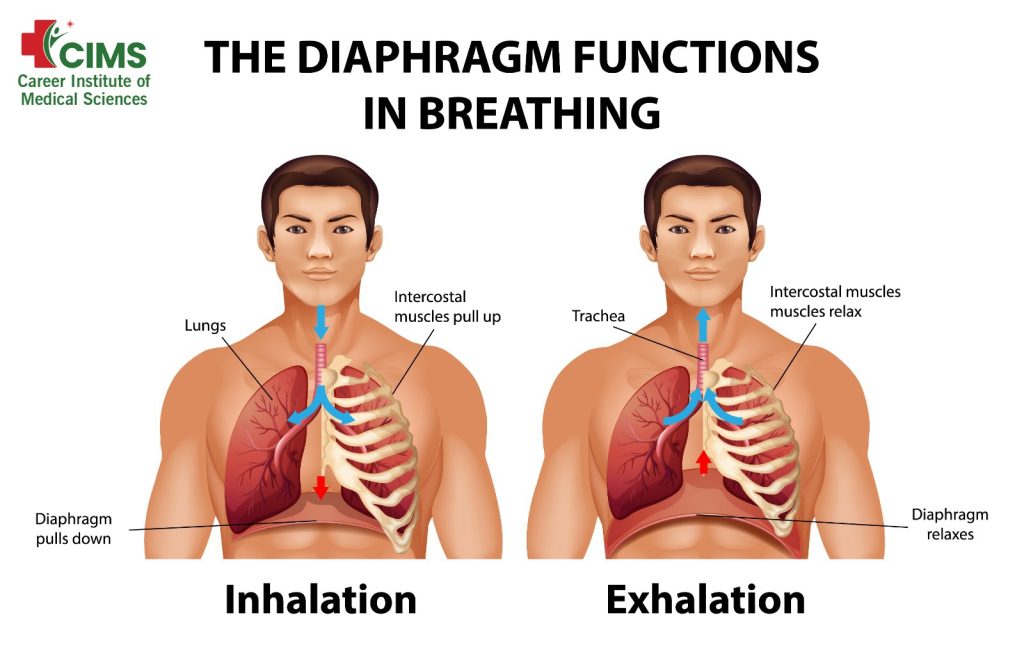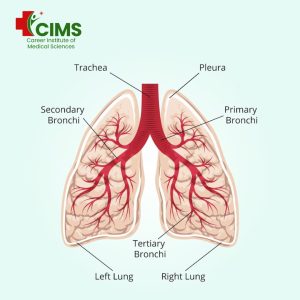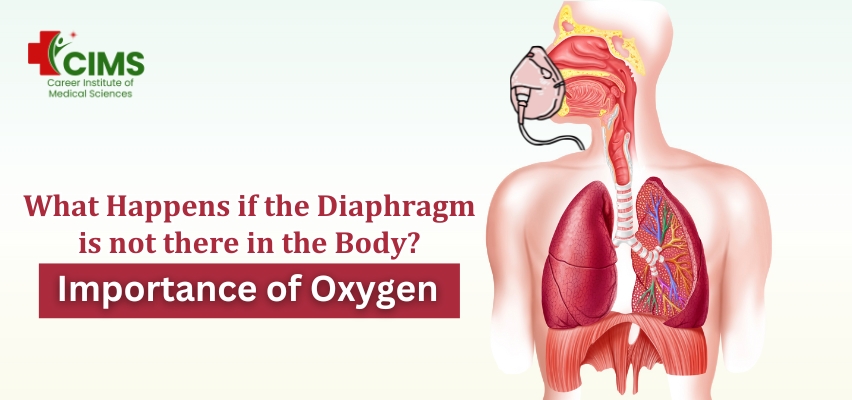Table of Contents
ToggleIf the Diaphragm is Not There in the Body? Importance of Oxygen
One important muscle that helps in breathing in the body is the diaphragm. However, have you ever thought about what happens if the diaphragm is not there in the body? The importance of oxygen and how the body depends on this essential muscle for its proper functioning. We can better appreciate the importance of oxygen and the diaphragm’s vital role in life. Let’s examine the relationships between these factors and the professional care that the Career Institute of Medical Science (CIMS) Hospital in Bhopal offers treatment for conditions that are related to them as well.
The Role of the Diaphragm in Breathing
A muscle with a dome shape that is located below the lungs is called the diaphragm. The lungs can expand and fill with air because the diaphragm pulls lower when it contracts. The body makes sure it gets enough oxygen to survive by going through this easy process. The diaphragm relaxes during breathing out, pushing carbon dioxide and gas out of the lungs.
Think about what happens if the diaphragm is not there in the body. As we know, the diaphragm is an important muscle of the body. Breathing becomes impossible without the diaphragm since the lungs are unable to expand or contract on their own. The body would suffer from a sudden lack of oxygen since life can’t exist without oxygen.

What Happens if the Diaphragm is Not There in the Body?
The effects of a missing diaphragm could be fatal for an individual. What may occur is as follows:
- Breathing difficulties: The diaphragm is necessary for the lungs to expand and contract. Without it, the body is unable to obtain enough oxygen on its own, and spontaneous breathing ceases.
- Serious Oxygen Deficiency: All body cells need oxygen. The body would experience hypoxia—a state in which insufficient oxygen reaches the tissues and organs—if the diaphragm were to fail. If the diaphragm is left untreated, this might result in organ failure or even death.
- Carbon Dioxide Build-Up: The diaphragm helps in the body’s removal of carbon dioxide. Increased CO2 levels result in respiratory acidosis (acidic breathing), which can cause confusion, unconsciousness, or even death if the diaphragm is absent or malfunctioning.
Importance of Oxygen for the Human Body
Oxygen is naturally necessary for every living thing. Cells in the body all need oxygen to produce energy. The heart, brain, and muscles are among the organs that are powered by this energy. In addition, oxygen boosts immunity, helps in the digestion of food, and permits the body to heal damaged tissues.

Not getting enough oxygen:
- Damage to the Brain: The brain requires 20% of the oxygen in the body. Reduced oxygen levels slow down brain activity, which can result in disorientation, headaches, or even coma.
- Heart and Organ Failure: A continuous flow of oxygen is necessary for the heart and other essential organs. Heart attacks and organ failure can result from low oxygen levels.
The Diaphragm and Oxygen: An Interdependent System
Oxygen and the diaphragm work together to continue life. The lungs receive airflow through the diaphragm, and oxygen is then taken up by the bloodstream. When oxygen enters the bloodstream, it proceeds to every cell in the body, giving it the energy it needs to carry out everyday tasks. In return, as a waste product of respiration in cells, the diaphragm helps in the removal of carbon dioxide. The body can not maintain this balance if the diaphragm fails to function.
CIMS Hospital, Bhopal: Expert Care for Diaphragm and Respiratory Conditions
The Career Institute of Medical Science (CIMS) Hospital in Bhopal offers specialized treatment for people suffering from respiratory diseases. Treating diaphragm dysfunction and other respiratory disorders, the CIMS Hospital has an experienced team of physicians and modern infrastructure. To provide the best results for their patients, they mix patient-focused care with technological advances in medicine.
Symptoms of Oxygen Deficiency
Here are some common symptoms of oxygen deficiency:
- Fatigue or weakness
- Rapid heartbeat
- Shortness of breath
- Bluish skin or nails
- Dizziness or confusion
These symptoms can help you in early prevention and better treatment if required.
Conclusion: The Vital Importance of the Diaphragm and Oxygen
It can be said that the importance of oxygen and the function of the diaphragm are necessary for breathing. What happens If the diaphragm is not there in the body, the body cannot survive because there is not enough oxygen in the air. Diaphragm dysfunction-related breathing problems required emergency treatment.
The Career Institute of Medical Science (CIMS) Hospital in Bhopal provides thorough and affordable treatment, ensuring that patients receive the best care available. Living a long and healthy life is mostly dependent on protecting your diaphragm and keeping your oxygen supply in good condition.
For more information, contact our hospital at +91 93037 00498 or by visiting our official website, CIMS: Best Cancer Hospital in Bhopal, where you can easily schedule an appointment.



